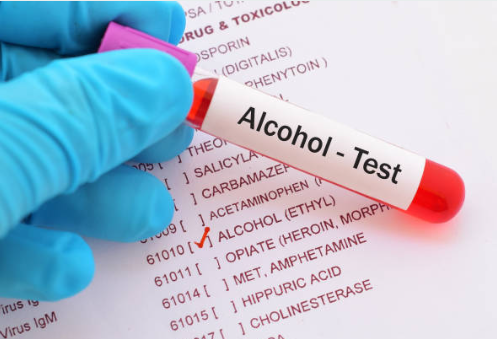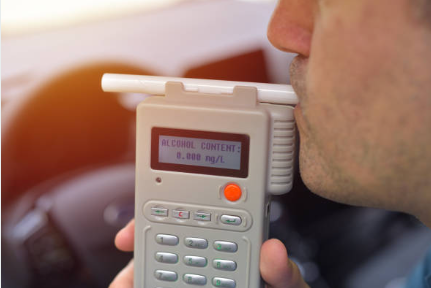Can You Drink Alcohol Before a Blood Test?
.png?v=1674234929883)

Related products
Whether it's a casual glass of wine at dinner or a social celebration, many people find themselves asking, “Can I drink alcohol before a blood test?” While it may seem like a minor detail, consuming alcohol before a blood test can significantly affect your results, leading to misinterpretations and the potential need for retesting. Since blood tests play a vital role in diagnosing, monitoring, and managing health conditions—from liver function and diabetes to hormonal balance and cholesterol—accuracy is essential.
Alcohol affects the body in multiple ways, and even a single drink can change your blood’s chemistry for several hours. It alters sugar metabolism, liver enzyme production, hydration status, and even hormone levels, all of which can influence lab results. Some tests are more sensitive than others—fasting glucose, lipid panels, and liver function tests are particularly vulnerable to even small amounts of alcohol. That’s why most healthcare professionals recommend abstaining from alcohol for at least 24 to 48 hours before a test.
Moreover, alcohol acts as a diuretic and can contribute to dehydration, further skewing results for tests measuring kidney function or electrolytes. And if the test is part of an investigation into fatigue, hormonal issues, or cardiovascular symptoms, alcohol consumption may inadvertently mask or exaggerate your baseline levels.
To make testing easier and more accurate, consider using convenient at-home options. Welzo offers the Home Blood Test page where you can explore professionally validated kits for liver, glucose, cholesterol, hormones, and more. Knowing exactly how your body is functioning—without external interference—is key to making the best health decisions.
How Does Alcohol Affect Blood Tests?
Alcohol’s immediate effect on the body includes altering blood sugar, impacting enzyme production, and increasing urination. These biological changes can compromise the reliability of blood test results. The type of blood test you’re having often determines how much of an effect alcohol will have.
Commonly affected tests include:
-
Liver Function Tests: Alcohol temporarily increases liver enzymes (ALT, AST, GGT), giving the false impression of liver damage or inflammation.
-
Glucose Tests: Alcohol affects insulin secretion and glucose metabolism, which can either raise or lower blood sugar unpredictably.
-
Lipid Profile: Drinking alcohol can increase triglycerides and interfere with cholesterol measurements, particularly if consumed within 12 hours of testing.
-
Coagulation Panels: Alcohol thins the blood and can distort clotting results such as PT or INR.
-
Electrolyte and Kidney Function Tests: Due to its dehydrating effect, alcohol may lead to skewed sodium, potassium, or creatinine levels.
For individuals who consume alcohol regularly and want to assess potential long-term liver impact, the Liver Blood Test is a practical starting point. It can help establish baseline liver health and detect early signs of dysfunction, especially when done after a period of abstinence.
Should You Avoid Alcohol Before a Blood Test?
In most cases, yes—avoiding alcohol before a blood test is strongly advised. The general guideline is to abstain for at least 24 hours, though 48 hours is preferable for fasting or sensitive panels. Alcohol, even in small amounts, can temporarily disrupt your body’s normal biochemical processes.
Reasons to avoid alcohol before a test:
-
False positives or negatives: Liver enzyme elevations from recent drinking may appear pathological when they’re not.
-
Misleading metabolic data: Blood sugar and triglycerides can be misrepresented, especially in fasting tests.
-
Increased dehydration risk: This can make venous access more difficult and skew several lab values.
-
Hormonal disruption: Alcohol interferes with the endocrine system, potentially affecting hormone testing.
Particularly for those undergoing lifestyle-related blood work—such as wellness assessments or weight management panels—alcohol can distort results. The Weight Loss Blood Test measures markers like thyroid hormones, cortisol, and glucose, all of which are sensitive to alcohol intake. To make accurate lifestyle and dietary choices, clear, alcohol-free test results are essential.
What If You’re a Moderate or Social Drinker?
Moderate alcohol consumption, defined by NHS guidelines as up to 14 units per week, doesn’t usually pose long-term risks for otherwise healthy individuals. However, even moderate intake within 12 to 24 hours before a blood test may still affect the outcomes, especially for tests that monitor metabolism or organ function.
Things to keep in mind as a moderate drinker:
-
Time matters: Alcohol can stay in your system for 12–24 hours depending on quantity, body weight, and hydration.
-
Metabolic variability: Even one drink may cause triglycerides or glucose to spike, depending on your diet and current metabolic state.
-
Fasting disruption: Alcohol contains sugars and calories that can compromise the fasting window.
If you're scheduling a test to explore cardiovascular health or cholesterol management, like the Cholesterol Blood Test, be mindful that alcohol within the previous day may impact LDL, HDL, and triglyceride levels. For best results, plan to skip alcohol for at least 24 hours before testing.
Alcohol’s Impact on Long-Term Health Markers
Chronic alcohol use causes deeper and more sustained damage to the body, including the liver, pancreas, endocrine system, and even the gut microbiome. This means that long after the alcohol leaves your bloodstream, its impact can still be seen in blood markers.
Long-term effects of alcohol on test results:
-
Persistently elevated liver enzymes: GGT and ALT may stay high due to fatty liver or cirrhosis.
-
Hormonal imbalances: Alcohol can lower testosterone and increase oestrogen levels, affecting mood, libido, and weight.
-
Vitamin and mineral deficiencies: Alcohol interferes with absorption of B vitamins and magnesium, which may reflect in wellness panels.
-
Insulin resistance: Chronic use increases the risk of prediabetes and type 2 diabetes.
To evaluate the deeper, systemic effects of alcohol, the Health and Lifestyle Blood Test offers a broad assessment of organ function, inflammation, and nutrition. This is especially useful for individuals making lifestyle changes or trying to reverse the effects of long-term drinking.
When to Speak to Your Healthcare Provider
If you’ve had alcohol within 24 hours before a test, or if you're unsure how it may affect your results, it's important to inform your healthcare provider. Being transparent allows them to interpret the data more accurately or recommend rescheduling the test if needed.
Your provider may also recommend targeted testing if alcohol use has been frequent or heavy. If you're experiencing fatigue, hormone imbalance, or unexplained symptoms, further analysis may be necessary. The AMH Blood Test, for example, is helpful for women monitoring ovarian reserve and fertility—a process that can be influenced by lifestyle factors like alcohol.
Additionally, for men and women with hormone-related symptoms or metabolic concerns, exploring broader diagnostic panels can offer clarity. Welzo’s All Health Tests Collection provides a range of test kits for liver, kidney, thyroid, and hormonal health in one place, supporting a more holistic understanding of your body’s response to lifestyle.
Conclusion: Alcohol and Blood Testing—What You Need to Know
In conclusion, drinking alcohol before a blood test can meaningfully affect your results, particularly for fasting tests, liver panels, glucose levels, and lipid profiles. Although the occasional drink may seem harmless, its short-term metabolic effects can compromise the accuracy of your health data. For this reason, most clinicians recommend avoiding alcohol for at least 24–48 hours before any test, and even longer for tests involving hormones, cholesterol, or liver function.
This guidance is especially important if you're using the test to guide treatment, make dietary changes, or monitor chronic conditions. Even moderate drinking can result in fluctuations that don’t accurately reflect your baseline health status. To ensure the most accurate and actionable information, abstaining from alcohol before testing is a simple but crucial step.
If you're seeking to understand how alcohol affects your health long term or want to investigate potential alcohol-related symptoms like fatigue, hormone disruption, or liver discomfort, explore Welzo’s Men’s Health Tests Collection for condition-specific diagnostics. For those managing allergies, inflammation, or nutritional sensitivities—especially alongside alcohol use—Welzo’s Intolerance Tests Collection offers in-depth insights into how your body is reacting to your environment and lifestyle.
When in doubt, speak with your healthcare provider and allow enough time between alcohol consumption and your blood test. With the right preparation, your results will be accurate, informative, and truly useful for managing your health.














 Rated Excellent by 26,523+ Reviews
Rated Excellent by 26,523+ Reviews